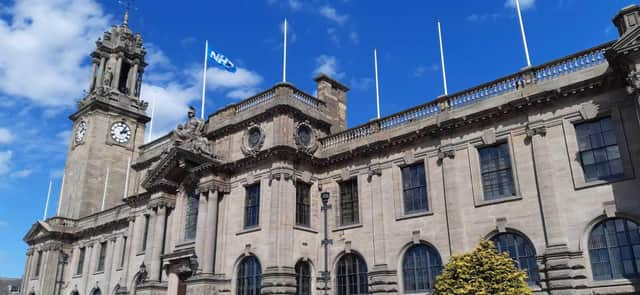'Putrescible waste' and vulnerable tenant left without heating and hot water among cases dealt with by South Tyneside Council enforcers


South Tyneside Council, like other local authorities, has powers to deal with a range of offences that breach regulations and risk the health and lives of residents.
The council’s regulatory services covers a range of departments including building control, environmental health, environmental enforcement, licensing and Trading Standards.
Advertisement
Hide AdAdvertisement
Hide AdOn Friday (September 10), councillors on the Licensing and Regulatory Committee were given an update on the work of the service over the last three months.
Issues faced ranged from huge amounts of “putrescible waste” being left at properties to dangerous housing standards, fly-tipping and dog fouling.
In private sector housing, the council received nearly 160 requests for service including 91 complaints of disrepair and 11 of illegal evictions.
A total of five enforcement notices were issued for serious breaches, including the removal and rehousing of a vulnerable tenant due to the “lack of hygienic sanitation, heating and hot water.”
Advertisement
Hide AdAdvertisement
Hide AdAnd in one case, approximately three tonnes of “putrescible waste” was removed from the property of a “vulnerable owner-occupier.”
The service continues to use all tools at its disposal and also issued a penalty of more than £6,000 for “failure to comply with an improvement notice.”
Other enforcement actions from the council over the last three months included:
:: Six prosecutions for fly-tipping or potentially verminous properties, with fines including costs and surcharges ranging from around £280 to nearly £1,000.
Advertisement
Hide AdAdvertisement
Hide Ad:: 17 Fixed Penalty Notices issued for breaches of the Environmental Protection Act 1990 or dog-related Public Space Protection Orders.
:: Investigations into 103 reports of abandoned vehicles, 13 of which have been seized and scrapped.
:: Trading Standards seizure of nearly 800 pouches of counterfeit hand rolling tobacco from one individual.
:: South Tyneside tradesman sentenced to nine months imprisonment, suspended for two years, after pleading guilty to seven counts of ‘fraud by false representation.’ The sentence followed a Trading Standards investigation.
Advertisement
Hide AdAdvertisement
Hide AdJames Maughan, operations manager for resilience on the council, said the figures provided a “small snapshot” of cases that needed legal interventions.
But he also stressed there was an “awful lot of work going on behind the scenes,” with a large number of cases where people had complied with council notices.
Throughout the Covid-19 pandemic, the council’s Licensing and Regulatory Committee have received regular updates on enforcement action against borough businesses under Covid-19 regulations.
A report to the committee this week noted changes following the lifting of most of the legal Covid-19 restrictions in July 2021.
Advertisement
Hide AdAdvertisement
Hide AdAs a result, a lot of enforcement work will now revert back to ‘business as usual’ with businesses expected to manage the hazard of Covid-19 in the same way as they would other hazards in the workplace.
Those who do not comply with relevant law and guidance to control public health risks can be issued with an improvement notice, prohibition notice or be prosecuted in serious cases.
However, the report to councillors stressed that business compliance with Covid-19 regulations in South Tyneside had been “exceptionally high” across the pandemic.
The report reads: “20 plus formal legal interventions have been taken ranging from community protection warnings to notices enforcing closure.
Advertisement
Hide AdAdvertisement
Hide Ad“This represents a very low number of formal enforcement actions when compared to total interventions.”